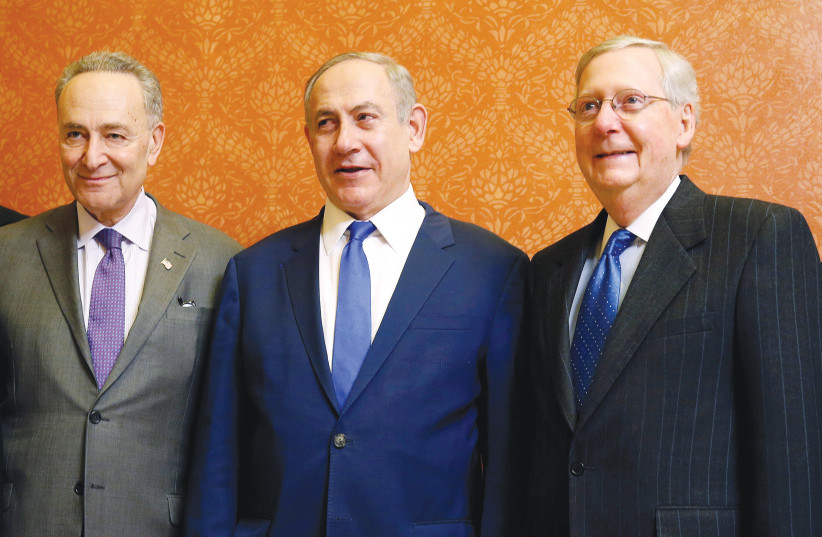“The Netanyahu coalition no longer fits the needs of Israel after October 7,” Schumer declared. “The world has changed radically since then, and the Israeli people are being stifled right now by a governing vision that is stuck in the past. Five months into this conflict, it is clear that Israelis need to take stock of the situation and ask ‘Must we change course?’ At this critical juncture, I believe a new election is the only way to allow for a healthy and open decision-making process about the future of Israel, at a time when so many Israelis have lost their confidence in the vision and direction of their government.”
Schumer’s chutzpadik speech was extraordinary not only because it was delivered by a Jewish New York Democrat with a long record of support for Israel but also because it signaled a peak in US frustration with Israeli policy. The speech enraged Netanyahu, who accused Schumer of interfering in Israeli politics during a war. “It’s inappropriate to go to a sister democracy and try to replace the elected leadership there,” he told CNN. “That’s something the Israeli public does on its own. We are not a banana republic.”
Asked by reporters about the speech a day later, Biden backed Schumer, saying, “He made a good speech. He expressed serious concerns, shared not only by him but by many Americans.” Following his State of the Union speech, the president was caught on a hot mic saying that Netanyahu needed a “come-to-Jesus moment.” Explaining the comment to MSNBC, Biden said the PM was “hurting Israel more than helping Israel.”
Although Biden robustly backed Israel’s right to defend itself after the October 7 massacre and rebuffed calls to impose conditions on providing US arms to Israel, he has increasingly pressed Israel to avoid more civilian casualties in Gaza and to allow in more international aid. On March 18, Biden held a 45-minute phone conversation with Netanyahu in which, according to National Security Advisor Jake Sullivan, he voiced opposition to a major Israeli ground operation in Rafah, saying it would “lead to more innocent civilian deaths, worsen the already dire humanitarian crisis, deepen the anarchy in Gaza, and further isolate Israel internationally.”
Similar sentiments were conveyed by Secretary of State Antony Blinken during his visit to Israel on March 22. While the US shares Israel’s goal of defeating Hamas, he stressed, “a major military ground operation in Rafah is not the way to do it.” In response, Netanyahu said: “We don’t have a way to defeat Hamas without going into Rafah... I hope that we will do it with America’s support, but if we need to, we’ll do it alone.”
It is now in both US and Israeli interests for their leaders to overcome bilateral tensions and work together to strike a deal to return the hostages. Until then, American leaders might want to learn the Hebrew phrase “Shomer piv u’leshono shomer mitzrot nafsho” – “One who guards his mouth and tongue guards his soul from distress.” Public spats between the US and Israel fuel the hatred of our mutual enemies – and global antisemitism.

